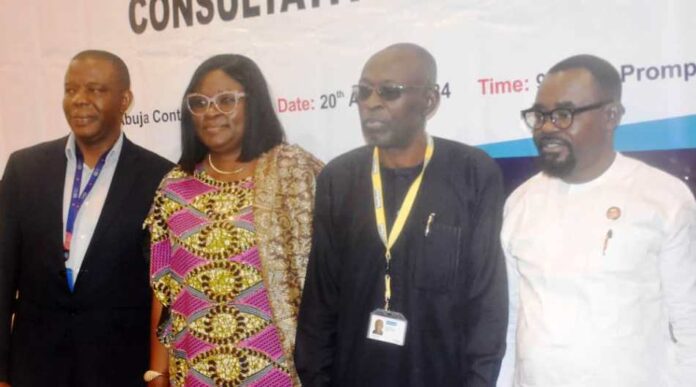The Federal Government has urged International Labour Organisation (ILO), TEARFUND and other relevant Stakeholders to participate actively to make valuable contributions and sustainable efforts to prioritize Waste Pickers welfare and recognize their contributions to environmental sustainability and equitable waste management system in Nigeria.
The minister who was represented by Director III, Pollution Control and Environmental Health Department, Omotunde Adeola disclosed this at a 0ne-day Stakeholders Forum to develop a National Digital Repository for waste pickers in Nigeria organized by Federal Ministry of Environment in partnership with ILO and Tearfund Nigeria held recently in Abuja.
Abbas Lawal stressed that waste pickers form the informal group whose activities encompasses all aspect of waste management from collection, sorting, transportation, processing and selling of recovered and recyclable materials to earn a living.
According to the the minister, waste pickers popularly known as “Baban Bola” are the backbone of the waste recovery, contributing significantly to the recycling and circular economy. They have established such a high network of operation and distribution of valuables both within and outside the country. This set of people cannot be overlooked in the value chain.
” We cannot speak about sustainable waste management without reference to the operation of waste pickers who form an integral part of the waste management value chain. Waste pickers exist as unsung heroes, but the truth is that they provide essential services that ensure the protection of our environment and public health.” He said.
Speaking further, he said the growing demand for recyclable materials and the transition to a circular economy makes it very imperative for governments and the general public to recognise, regulate and integrate waste pickers into the overall waste management effort in order to unlock the immense economic potential using them as reliable foot soldiers.
He noted that there is a growing recognition that waste pickers contribute to local economy, public health, safety and environmental sustainability but they are faced with negative public perception, deplorable living conditions and very little support from government both at the national and subnational levels.
“Waste pickers in Nigeria, are confronted with the following challenges; They live in Shanties or makeshift house, their activities are not formalised which results in lack of coordination and regulation by government agencies, they are exposed to several health hazards and risk due to exposure to hazardous wastes, they lack access to adequate medical facilities or first aid treatment. There is bad perception due to activities of some miscreants who commit illegal activities like theft and Security Bridge.”
The Minister reiterated that we must all work together to implement solutions that will guarantee better working conditions for pickers”.
Similarly, the National Project Coordinator, International Labour Organization (ILO), Stephen Agugua, said concerted effort is required to ensure that waste streams are effectively controlled using sound waste management practices.
Agugua explained that when waste are managed well in a sustainable manner, it offers opportunities for the creation of jobs in the circular economy, which can contribute to strengthening the resilience of local economies and expansion of opportunities for decent job creation.
He added these considerations have motivated the interventions and actions of ILO within this sector, as a UN agency, the ILO is also bounded by the Fair Circularity Principles which applies the expectations and responsibilities outlined in the UN Guiding Principles on Business and Human Rights to the informal waste sector.
He said that despite the crucial environmental and public health role they play, waste pickers often face significant human rights impacts.
He assured Nigeria of ILO and its constituent partners’ commitment to ensuring a sustainable future takes place and meets the requirements of decent work globally.
He further stressed that the ILO recognized the critical role of informal waste sector workers in plastic waste and recycling value chains.
“To respect the rights of informal waste sector workers by preventing and addressing human rights impacts experienced by those workers, in line with the nature of the company’s involvement, Engage all partners in plastics packaging recycling value chains towards coherent and comprehensive approaches, engage government actors to create enabling environments for rights-respecting business practices.
The commissioner of police FCT command, Benneth Igweh, represented by Austine Aniah, promised to make Abuja safe for the smooth execution of all programmes.
He, however, said 50 percent of waste pickers are responsible for crimes committed in Abuja while urging participants to disconnect self from those who commit crimes.
Ibrahim Haruna
Head, Press and Public Relations






